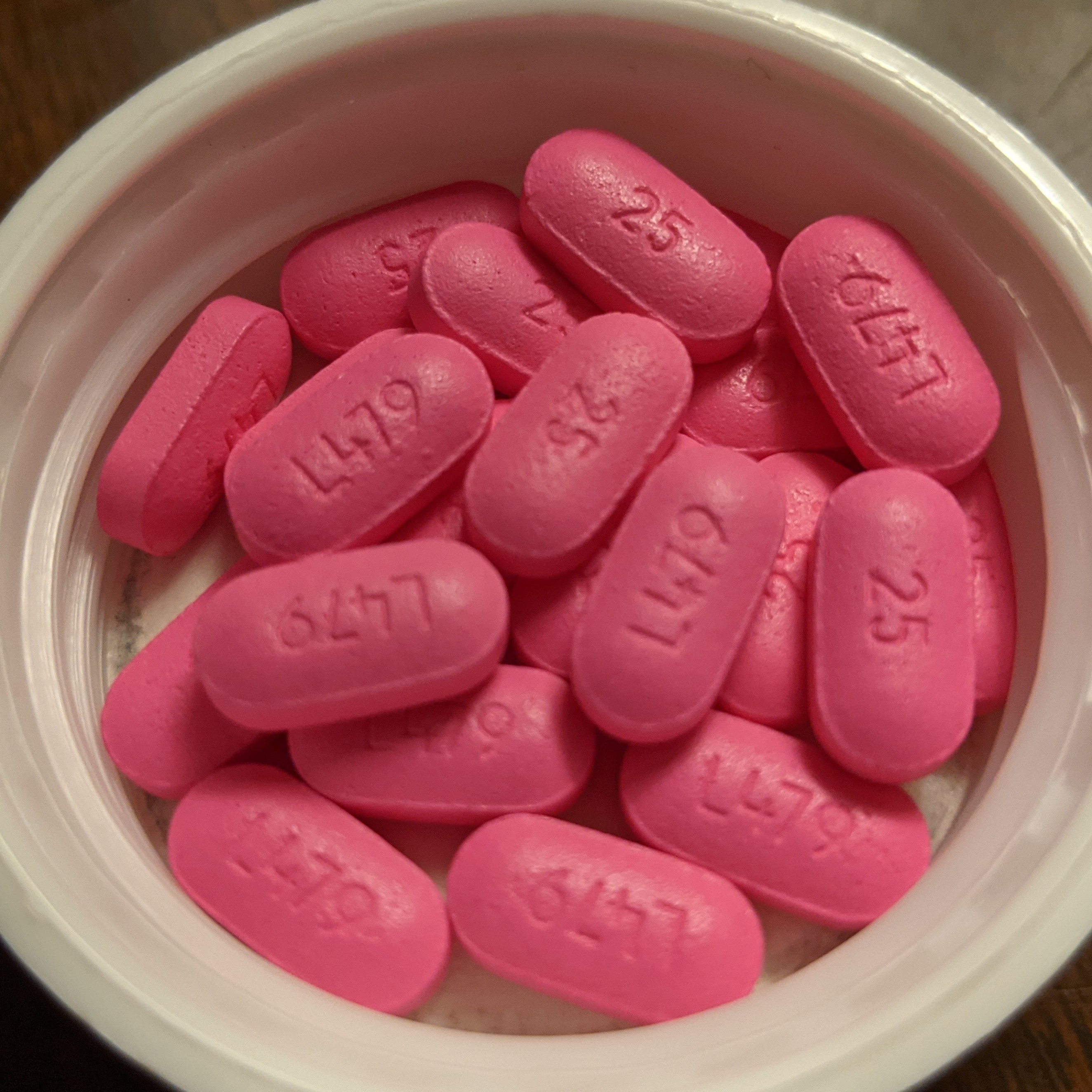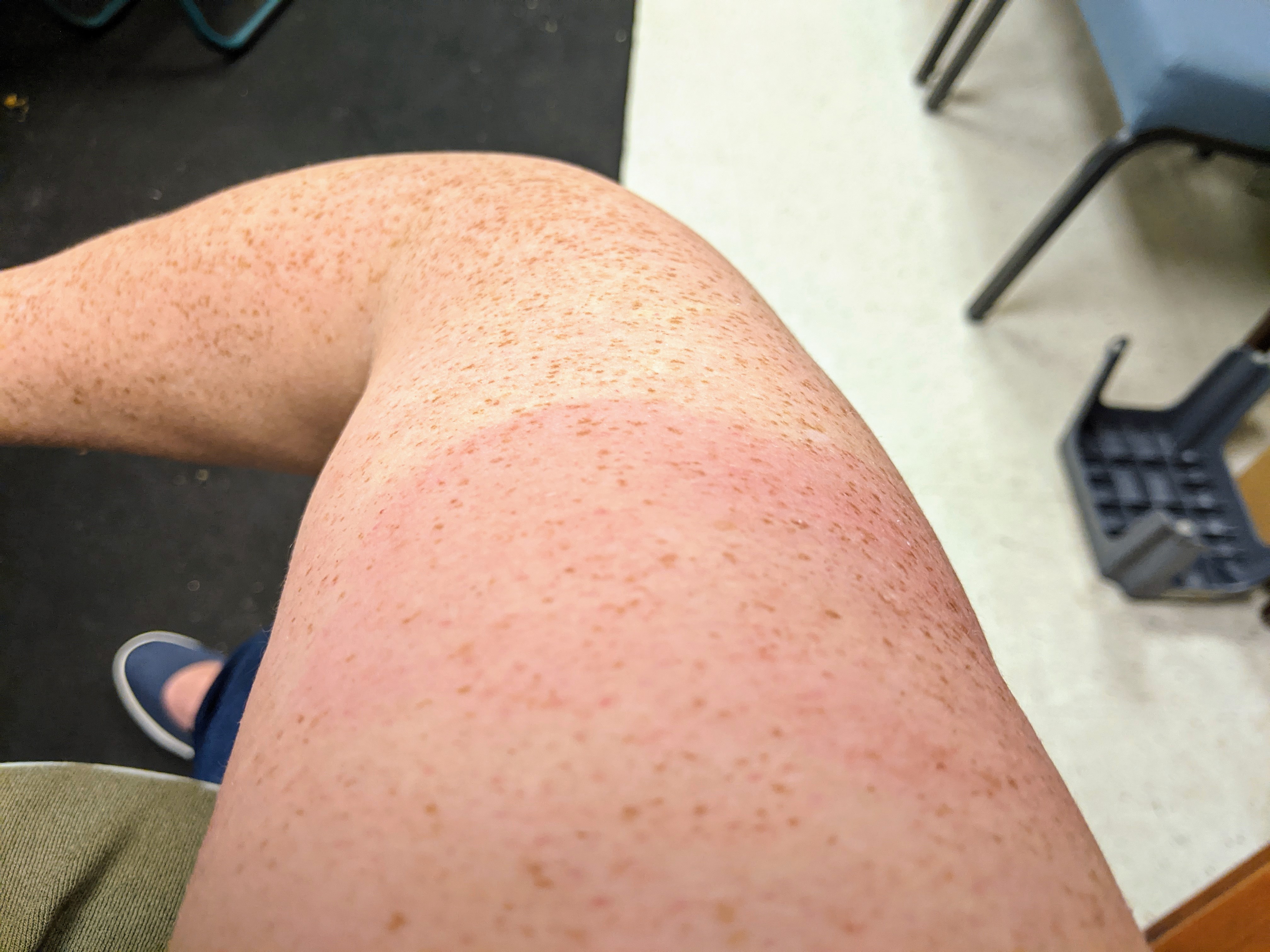Tryptasemia & Co-Morbidities
 About Tryptasemia.com
About Tryptasemia.com ![]() COVID & HATS
COVID & HATS ![]() Faces of Tryptasemia
Faces of Tryptasemia ![]() Bookshelf
Bookshelf ![]() News
News ![]() Quick HAT Primer
Quick HAT Primer ![]() Protocols @ NIH
Protocols @ NIH ![]() Treatments
Treatments ![]() HATS Glossary
HATS Glossary ![]() Co-morbidities
Co-morbidities ![]() Stories
Stories ![]() Studies
Studies
- Details
- Written by Karen Smith-Will
- Parent Category: Research
- Category: Tryptasemia & Co-Morbidities
July 22, 2021
Go check out Thriving with Lipedema. This blog describes living with lipedema, from a patient who also has HATS.
June 4, 2021
June is Lipedema Awareness month.
- Details
- Written by Karen Smith-Will
- Parent Category: Research
- Category: Tryptasemia & Co-Morbidities
Valutivity LLC is celebrating our 4th #RareDiseaseDay2021 virtually "at" the NIH on Monday, 3/1/2021. Last year, I attended #RDDNIH in person at the National Institutes of Health (NIH), met with my doctor at Building 10, and performed piano/vocal concerts at the NIH's Safra Lodge (for adult patients) and their Children's Inn. These events were very memorable, given their proximity to all of the COVID-19 closings.
We had rolled out Tryptasemia.com / Tryptasemia.org in preparation for #RareDiseaseDay2020. In the 12 months since then, we've amassed over 12,600 hits!
- Details
- Written by Karen Smith-Will
- Parent Category: Research
- Category: Tryptasemia & Co-Morbidities
 Every medical disease and disorder is, no doubt, considering the specific impacts of COVID-19 to their population. Did you know that a drug commonly used in the Hereditary Alpha Tryptasemia Syndrome (HATS), Mastocytosis, and mast cell disorder populations has shown tentative antiviral effects? And have you or anyone you know with HATS tested positive for COVID-19?
Every medical disease and disorder is, no doubt, considering the specific impacts of COVID-19 to their population. Did you know that a drug commonly used in the Hereditary Alpha Tryptasemia Syndrome (HATS), Mastocytosis, and mast cell disorder populations has shown tentative antiviral effects? And have you or anyone you know with HATS tested positive for COVID-19?
- Details
- Written by Karen Smith-Will
- Parent Category: Research
- Category: Tryptasemia & Co-Morbidities
 With a title like this, one might expect entries like chapeau, fez or fedora. ;) Hereditary Alpha Tryptasemia Syndrome (HATS) encompasses quite a few terms not fully familiar to us, from the genetic and medical domains. Let us know if there are others we should add.
With a title like this, one might expect entries like chapeau, fez or fedora. ;) Hereditary Alpha Tryptasemia Syndrome (HATS) encompasses quite a few terms not fully familiar to us, from the genetic and medical domains. Let us know if there are others we should add.
- Details
- Written by Karen Smith-Will
- Parent Category: Research
- Category: Tryptasemia & Co-Morbidities
 When you have a mystery illness, it's hard enough to get diagnosed with the recognizable disorders. It's important to remember: often, doctors only diagnose disorders they're familiar with.
When you have a mystery illness, it's hard enough to get diagnosed with the recognizable disorders. It's important to remember: often, doctors only diagnose disorders they're familiar with.
- Details
- Written by Karen Smith-Will
- Parent Category: Research
- Category: Tryptasemia & Co-Morbidities
Hereditary Alpha Typtasemia Syndrome (HATS), as a published disorder, is in its infancy. No longitudinal, double-blind studies have been completed targeting treatments for HATS. In the meantime, treatments are generally borrowed from those used with Systematic Mastocytosis or other Mast Cell disorders.
- Details
- Written by Karen Smith-Will
- Parent Category: Research
- Category: Tryptasemia & Co-Morbidities
The following is a 7th day reaction to a pair of vaccines, shingles and pneumonia.

Note the following:
- This patient has been diagnosed with shingles twice in the past (more than 5 years previously).
- This patient has been diagnosed with pneumonia multiple times in the past (more than five years previously).
- Details
- Written by Karen Smith-Will
- Parent Category: Research
- Category: Tryptasemia & Co-Morbidities
 Every domain has its best (most up-to-date, valuable for patients) literature; for Hereditary Alpha Tryptasemia Syndrome (HATS) they're usually peer-reviewed journal articles, videos from conferences, etc. This annotated bibliography is prioritized in date order; with a newer disorder, having the newest research from the field is critical.
Every domain has its best (most up-to-date, valuable for patients) literature; for Hereditary Alpha Tryptasemia Syndrome (HATS) they're usually peer-reviewed journal articles, videos from conferences, etc. This annotated bibliography is prioritized in date order; with a newer disorder, having the newest research from the field is critical.
For patient stories, see Faces of Tryptasemia.
- Details
- Written by Karen Smith-Will
- Parent Category: Research
- Category: Tryptasemia & Co-Morbidities
 “But my tryptase isn’t high--I'm looking right here at my LabCorp readout, and it says my tryptase is normal.”
“But my tryptase isn’t high--I'm looking right here at my LabCorp readout, and it says my tryptase is normal.”- Details
- Written by Karen Smith-Will
- Parent Category: Research
- Category: Tryptasemia & Co-Morbidities
 I’ve known for months that Frugal Black Thumb Gardening's roses needed a trim. Besides looking like a mess, they were impinging on my patient’s neighbor’s yard. One bush had been overtaken with blue wildflowers.
I’ve known for months that Frugal Black Thumb Gardening's roses needed a trim. Besides looking like a mess, they were impinging on my patient’s neighbor’s yard. One bush had been overtaken with blue wildflowers.
Getting them back under control was going to be more than a thorn in my side. 🆕 3/31/2021 See UPDATE at the end.
- Details
- Written by Karen Smith-Will
- Parent Category: Research
- Category: Tryptasemia & Co-Morbidities
 This was first published on Facebook as a Public article.
This was first published on Facebook as a Public article.Subcategories
Page 2 of 3
